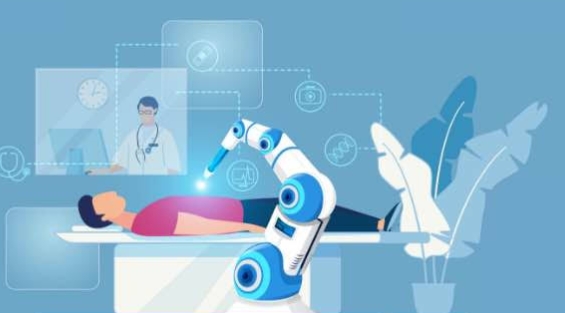AI Technology in the healthCare System??
Using AI technology in healthcare can significantly improve patient outcomes, streamline administrative processes, and enhance the overall healthcare system. To better leverage AI in healthcare, several key strategies and considerations should be taken into account.
- 1. **Early Disease Detection and Diagnosis**: AI technology can analyze medical images and patient data to detect diseases like cancer, diabetes, and cardiovascular conditions at an earlier stage. This can lead to more effective treatments and higher survival rates.
- 2. **Personalized Treatment Plans**: AI technology algorithms can analyze patient data to create personalized treatment plans. By considering an individual’s genetics, medical history, and lifestyle, AI can help physicians make more informed decisions about treatments and medications.
- 3. **Drug Discovery and Development**: AI technology can significantly expedite the drug discovery process by simulating drug interactions, predicting potential side effects, and identifying promising compounds. This can lead to the development of new, more effective medications.
- 4. **Telemedicine and Remote Monitoring**: AI- technology powered telemedicine platforms can provide access to healthcare for remote and underserved populations. Remote monitoring of vital signs and chronic conditions allows for real-time patient care and reduces the need for in-person visits.
- 5. **Electronic Health Records (EHRs)**: AI can improve the management and analysis of electronic health records, making it easier for healthcare providers to access and interpret patient data. This can enhance care coordination and reduce errors.
- 6. **Chatbots and Virtual Assistants**: AI-driven chatbots and virtual assistants can provide patients with instant answers to common healthcare questions and assist with appointment scheduling, medication reminders, and post-operative care instructions.
7. **Predictive Analytics**: AI can predict disease outbreaks and healthcare trends, enabling healthcare systems to allocate resources more effectively. Predictive analytics can also identify high-risk patients who may require additional care and intervention.
8. **Administrative Efficiency**: AI can streamline administrative tasks such as billing, claims processing, and appointment scheduling, reducing administrative overhead and allowing healthcare providers to focus more on patient care.
9. **Data Security**: With the vast amount of sensitive patient data involved, data security is crucial. AI can be used to enhance cybersecurity measures and protect patient information from breaches and unauthorized access.
10. **Ethical Considerations**: It is essential to address the ethical issues surrounding AI in healthcare, including patient data privacy, algorithm bias, and the impact on healthcare professionals. Transparent and ethical AI development and usage are critical.
11. **Regulatory Compliance**: Healthcare AI systems must adhere to strict regulatory requirements, such as HIPAA in the United States. Ensuring compliance is crucial to avoid legal and privacy issues.
12. **Training and Education**: Healthcare professionals need training to understand and effectively use AI technologies. Continuous education can help them make informed decisions about patient care and treatment options.
13. **Cost-Effectiveness**: While AI can provide numerous benefits, it’s important to consider the cost-effectiveness of implementing these technologies. Healthcare organizations should evaluate the return on investment and prioritize AI applications that provide the most significant value.
14. **Interoperability**: Different healthcare systems and devices need to communicate effectively to leverage AI fully. Developing standardized data formats and interfaces can enhance interoperability.
15. **Patient Engagement**: Involving patients in their own care and treatment decisions is crucial. AI can provide patients with information and insights to make informed choices about their health.
16. **Research Collaboration**: Encouraging collaboration between AI researchers, healthcare professionals, and institutions can accelerate the development and adoption of AI solutions in healthcare.
17. **Feedback and Improvement**: Continuous feedback loops and monitoring are essential to refine AI algorithms and systems. Regularly updating and improving AI technologies can enhance their effectiveness.
In conclusion, AI technology has the potential to revolutionize the healthcare system. To better utilize AI in healthcare, it is essential to focus on early disease detection, personalized treatment plans, drug discovery, telemedicine, and administrative efficiency. Additionally, addressing ethical considerations, regulatory compliance, and data security is crucial. Healthcare professionals must be educated on AI technologies, and a patient-centric approach should be adopted. Collaboration and ongoing feedback are also vital for the successful integration of AI into the healthcare system. By addressing these key strategies and considerations, healthcare can harness the power of AI to provide more efficient, effective, and patient-centered care.
For more information visit at https://happenrecently.com/zepto/?amp=1

